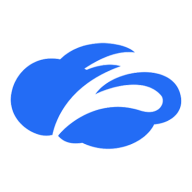

Zscaler Zero Trust Exchange Platform and SentinelOne Singularity Cloud Security are both positioned in the cloud security market, offering unique features tailored for varied security needs. Zscaler holds a slight edge in ease of use and integration, while SentinelOne is noted for its advanced detection and forensic capabilities.
Features: Zscaler excels with single sign-on support, making integration and connectivity seamless without frequent re-authentication. Its advanced security features, including CASB, DLP, and SSL inspection, enhance data protection and mitigate security gaps. SentinelOne provides real-time detection and AI-powered response, automating threat responses and offering comprehensive cross-platform support with deep forensic visibility.
Room for Improvement: Zscaler encounters speed and bandwidth issues with legacy systems and requires improvement in latency and external access integration. High configuration costs are also noted. SentinelOne faces occasional false positives and a need for a more intuitive interface, with some integration areas needing work. It is often perceived as better suited for large enterprises due to cost considerations.
Ease of Deployment and Customer Service: Zscaler supports versatile deployment models across cloud environments, though some features require additional configurations. Customer service experiences vary. SentinelOne thrives with public cloud deployment for cloud-native applications, generally praised for effective technical support despite occasional costs and delays impacting satisfaction.
Pricing and ROI: Zscaler is on the pricier side with features adding significant costs, but users report positive ROI from its security enhancements and connectivity solutions. SentinelOne provides flexible pricing, appealing to organizations focused on comprehensive security, offering value despite higher costs deterring smaller businesses. Both solutions show ROI through better security and operational efficiency, with Zscaler improving user experience and SentinelOne offering cost-effective threat management.
The detailed information PingSafe gives about how to fix vulnerabilities reduces the time spent on remediation by about 70 to 80 percent.
After implementing SentinelOne, it takes about five to seven minutes.
Our ability to get in and review our vulnerability stance, whether daily, monthly, weekly, or whatever it might be, has drastically improved over our prior provider.
When we send an email, they respond quickly and proactively provide solutions.
They took direct responsibility for the system and could solve queries quickly.
Having a reliable team ready and willing to assist with any issues is essential.
Sometimes, support takes time since the solution has some bugs that need fixing.
As soon as we need to add somebody, we just add them to NinjaOne, and then we have a script set up where it automatically deploys and adds them to whichever group we need.
I would rate it a 10 out of 10 for scalability.
Scalability is no longer a concern because Cloud Native Security is a fully cloud-based resource.
In my experience, there has been 100 percent uptime.
SentinelOne Singularity Cloud is incredibly reliable.
The cloud console is very resilient.
If I had to ask for anything to make it easier, it would be signed images that are GPG signed and a public repository where we can get the bits from.
If they can merge Kubernetes Security with other modules related to Kubernetes, that would help us to get more modules in the current subscription.
As organizations move to the cloud, a cloud posture management tool that offers complete cloud visibility becomes crucial for maintaining compliance.
They might be able to identify if something is missing with Zscaler.
With very little negotiation involved, we just let them know what we could pay and they were willing to meet us at slightly above what we paid with Sophos, which was still very fair for what we were looking at.
The price was very, very important to us, and it came down to the price when we were doing our evaluations WatchGuard and SentinelOne.
Covering our 50,000 endpoints would have nearly bankrupted most security programs, even well-funded ones like ours.
The real-time detection and response capabilities of SentinelOne Singularity Cloud impressive because it is a platform that uses artificial intelligence to determine what is normal and what is abnormal and can lock down any virus it may encounter.
We were shown how ransomware can be immediately stopped in real-time. That was huge.
Our previous product took a lot of man hours to manage. Once we got Singularity Cloud Workload Security, it freed up our time to work on other tasks.
The solution is cloud-based with the latest inspection engines, which I find to be amazing.


SentinelOne Singularity Cloud Security protects cloud workloads, offering advanced threat detection and automated response. It integrates seamlessly with cloud environments and secures containerized applications and virtual machines against vulnerabilities.
SentinelOne Singularity Cloud Security is renowned for its efficiency in mitigating threats in real-time. The platform integrates effortlessly with existing cloud environments, ensuring robust cloud security management with minimal manual intervention. Securing containerized applications and virtual machines, it excels in threat intelligence and endpoint protection. However, improvements are needed in performance during high workload periods, and more integrations with third-party tools and better documentation would be beneficial. Users often find the installation process complex, support response times slow, and the dashboard's navigation unintuitive.
What are the key features of SentinelOne Singularity Cloud Security?In specific industries, SentinelOne Singularity Cloud Security is implemented to safeguard critical data and infrastructure. Organizations in finance, healthcare, and technology depend on its real-time threat detection and automated response to protect sensitive information. Its ability to secure containerized applications and virtual machines is particularly valuable in dynamic environments where rapid scaling is necessary.
Zscaler Zero Trust Exchange Platform acts as a VPN alternative for secure remote access, cloud protection, and zero-trust strategies. It enables secure data transmission, supports remote work, and enhances compliance through a cloud-based architecture, offering improved performance and simplified management.
Designed for organizations seeking secure application access and robust data protection, Zscaler Zero Trust Exchange Platform delivers a comprehensive solution through seamless VPN connectivity, data loss prevention, and SSL inspection. Its cloud integration ensures scalability and reliability, while its interface provides intuitive management. Companies benefit from automatic secure access, minimizing constant authentication needs, and safeguarding sensitive data. The platform allows easy deployment and integration with diverse identity providers, granting granular control for access and application segmentation. Despite powerful capabilities, enhancements are needed in speed, bandwidth, and legacy support, with users noting interface and configuration challenges.
What are the key features of Zscaler Zero Trust Exchange Platform?In specific industries, Zscaler Zero Trust Exchange has been implemented to enhance security protocols in fields like finance and healthcare. By prioritizing data protection and compliance, it assists companies in safely managing sensitive information and meeting regulatory requirements. Organizations leverage its features to ensure secure operations across remote and cloud environments, adapting to industry-specific needs with customizable access and security controls.
We monitor all Cloud Security Posture Management (CSPM) reviews to prevent fraudulent reviews and keep review quality high. We do not post reviews by company employees or direct competitors. We validate each review for authenticity via cross-reference with LinkedIn, and personal follow-up with the reviewer when necessary.